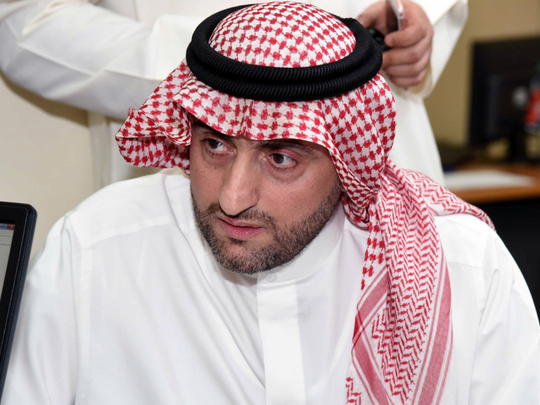
Kuwait City: A member of Kuwait’s ruling family announced Wednesday his candidacy for next month’s parliamentary election, a rare move in the oil-rich Gulf state where royals normally stay away from polls.
Shaikh Malek Humoud Al Sabah was among 71 hopefuls who filed to stand for election on the first day of registration which saw some opposition members return after a four-year boycott.
“The previous assembly let down the Kuwaiti people and I am contesting the polls to defend the rights of the people,” said Shaikh Malek.
Speaking to reporters in Kuwait City, he said he had given up his special passport “to become an ordinary citizen” and that he does not mind losing other benefits.
Under the Kuwaiti constitution, royals are eligible to run for public office.
Only a few have registered as candidates in the emirate’s 54 years of democracy, but all have dropped out before election day.
The last royal to register their candidacy was Shaikh Fahad Salem Al-Ali Al-Sabah, who withdrew before the 2006 election.
Members of the Al-Sabah family, which has been in power for 250 years, still occupy the main posts in the Opec member-nation.
The Emir, Crown Prince and prime ministers are senior members of the family, and royals always occupy the key posts of foreign, defence and interior minister.
The November 26 polls were called after Kuwait’s Emir Shaikh Sabah Al Ahmad Al Sabah dissolved parliament on Sunday, following a dispute over petrol price hikes.
Many candidates have criticised the outgoing parliament for failing to defend the interests of citizens.
Political parties are banned under Kuwaiti law, but many Islamist, nationalist and liberal groups operate freely as de facto parties.
Under Kuwait’s unique system of democracy, a senior ruling family member will be mandated to form a government regardless of poll outcome.
Many opposition groups have decided to take part after boycotting the previous two elections in protest against changes to the voting system.
Only two former opposition lawmakers registered on Wednesday, but as independents.










